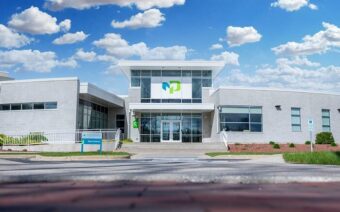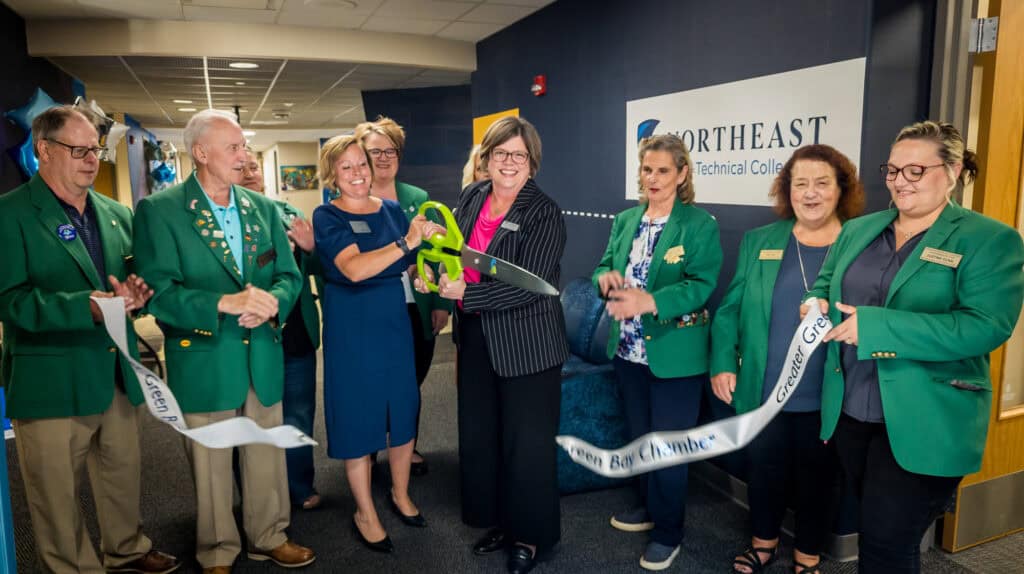
September 9, 2024
GREEN BAY – It just got much easier for NWTC students to earn a bachelor’s or master’s degree without ever leaving the Green Bay campus.
In conjunction with Lakeland University, the two schools recently made it official with a ribbon-cutting ceremony at NWTC late last month.
Through the Green Bay Center, Lakeland will offer more than a dozen bachelor’s degree programs, as well as four master’s degree programs – which are available online, in-person or any combination of the two.
“Times are changing in higher education, so we must adapt to those changes,” Lakeland President Beth Borgen said. “This has been a long time coming. This partnership allows a new level of access for students, their families, local schools and employers.”
NWTC President Kristen Raney said the partnership – which took many months of planning – provides another option for students.
“When we come together with a partner like Lakeland, we’re able to do things for our students we couldn’t do alone,” she said. “One of those areas is transferring. Students can see where they start and see what they need to do to finish at NWTC.”
Laurie Radtke, president/CEO of the Greater Green Bay Chamber, said she has worked with both schools in the past and describes the partnership as a collaboration for “the betterment of our students.”
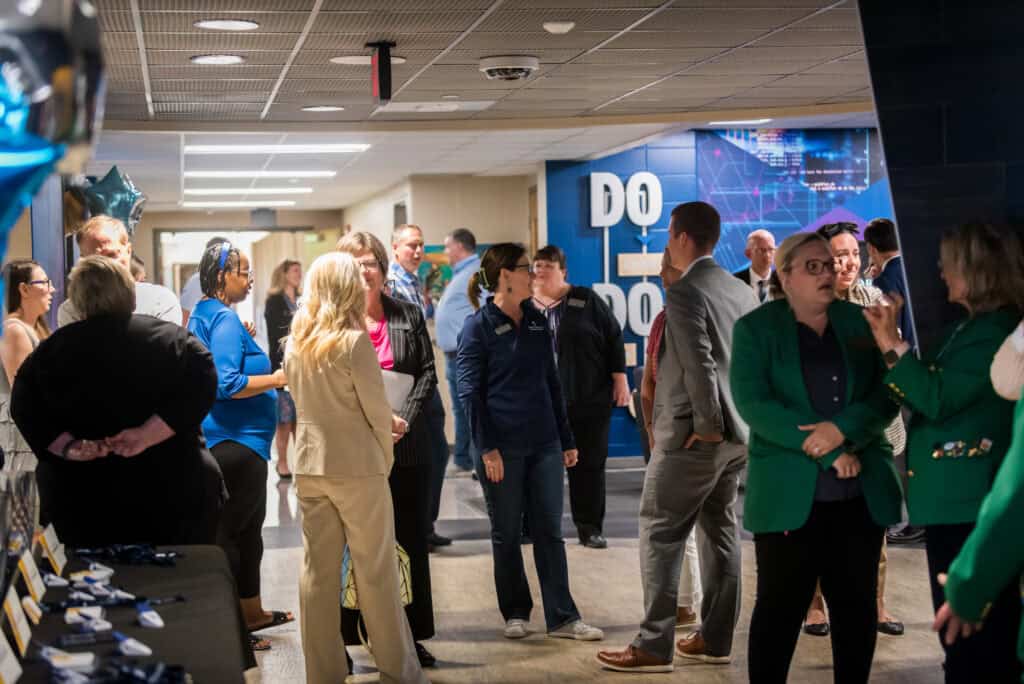
“Both institutions are committed to student success,” she said. “You have to meet students where they’re at, so that’s why this partnership is so great. I can’t wait to see what this does for our students.”
A few more details
Lakeland has had a location in the Green Bay area since 1984, but Borgen said “it made sense to relocate (it) to NWTC’s main campus.”
“The vast majority of our graduates from Green Bay (at Lakeland) are graduates of NWTC, so it makes complete sense to have a dedicated space on this campus,” she said. “NWTC students are already comfortable at their own campus, so why not keep them here to finish up a bachelor’s or master’s degree?”
Borgen said oftentimes, NWTC’s faculty will teach Lakeland’s curriculum.
“(Then students) already know most of the instructors,” she said. “We’ve always worked closely with NWTC – we’re not strangers and have worked well together over the years.”
The center, one of six that Lakeland has in Wisconsin, will be housed in the NWTC College of Business building (entrance 3) and will include an office presence and a dedicated classroom.
“Lakeland was the first in the state to recognize the need to find ways to serve working adults who were looking to accomplish their academic and career goals,” Borgen said. “Lakeland was also the first in the state to offer online programming and became known for its blend-ed course delivery, allowing students to complete classes on their own and on their own schedule.”
Borgen said the partnership will allow NWTC graduates to enroll at Lakeland as juniors, receive a 20% tuition discount for undergraduate courses and gain access to credit for prior learning as well as up to a full year of academic credit for work completed through Lakeland’s innovative Cooperative Education program.
“In 2018, Lakeland added Cooperative Education to our portfolio,” she said. “This award-winning program allows students to earn up to 25% of their degree through paid workplace experiences and project-based learning.”
With Lakeland being a private university and NWTC a public institution, Borgen said these types of partnerships aren’t typically seen.
“We have five other locations – besides NWTC – around the state with technical colleges, so I think word gets around,” she said.
Raney said another reason the partnership is so important is because students need change over time.
“Sometimes, students graduate from high school and know exactly what they want to do – maybe it’s coming to a technical college or going to a traditional four-year university,” she said.
In other cases, Raney said, that might not be the case.
“Sometimes, those needs evolve,” she said. “Students might come to NWTC, get that degree and then go out in the workforce for a few years. Then when they’re in the field for a while, they start seeing other possibilities for a promotion or a different role in an organization – they might realize now there is a need to go forward with a four-year degree.”
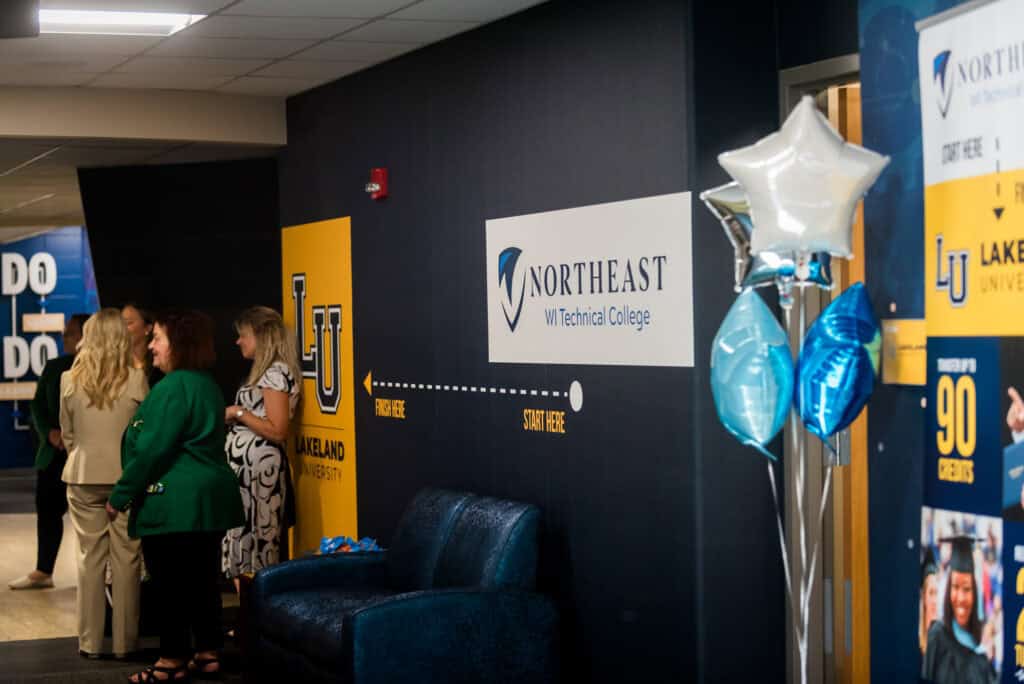
With Northeast Wisconsin being one of the heaviest manufacturing regions in the country, Raney said it’s important to keep as many students as possible in Northeast Wisconsin after graduation.
“We absolutely need workers,” she said. “The one thing we keep hearing over and over from employers is, ‘we need skilled workers, and we need them now.’ They want to keep them here. We’re trying to keep our community strong – this is a great place to work and live in.”
Another partnership
NWTC isn’t the only technical college in the state to have recently partnered with Lakeland.
Earlier this summer, Lakeland and Moraine Park Technical College (MPTC) in Fond du Lac announced a nursing partnership.
Beginning this fall, students can simultaneously enroll in both schools on their way to earning an associate’s degree in nursing from MPTC and a bachelor’s degree in nursing from Lakeland in four years.
Borgen said students enrolling in the program will supplement classroom learning through clinical placements via MPTC’s partners and Lakeland’s Cooperative Education program.
“Between MPTC’s clinical training and Lakeland’s Cooperative Education program, students have the opportunity to explore several nursing disciplines and make better decisions about their futures, all while getting paid work experience with college credit attached,” she said. “There is such a need for nursing students, so we are extremely happy to work with MPTC on this.”
According to Wisconsin Lieutenant Gov. Sara Rodriguez, the state will need 20,000 more nurses by 2040.
Borgen said the partnership began as a way to address a problem.
“Lakeland was turning away student-athletes who wanted to compete at the NCAA DIII level but who also wanted to pursue a career in nursing,” she said. “As much as they wanted to play, they were not going to enroll at Lakeland University if they couldn’t also pursue their dreams of becoming nurses.”
Because many of them come from out of state to play sports, Borgen said they were also not going to relocate to enroll at Moraine Park.
“Knowing we had this significant interest from prospective students, knowing that as many as 80% of our students stay living in the area upon graduation and knowing we have great partners with a great nursing program just down the street, we asked ourselves, ‘how might we partner to enroll these students in both institutions, while allowing them to live on a residential campus and participate in athletics?’” she said.
Borgen said further discussions turned into an “impressive four-year nursing degree.”
“It leverages Lakeland’s cooperative education program, our employer partners and the ability for nursing students to engage in a wide variety of placements,” she said. “I want to thank the folks at Moraine Park who were willing to think outside the box while developing an innovative pathway to solve a critical workforce need.”
 Bellin’s Casey honored with WACEP Distinguished Service Award
Bellin’s Casey honored with WACEP Distinguished Service Award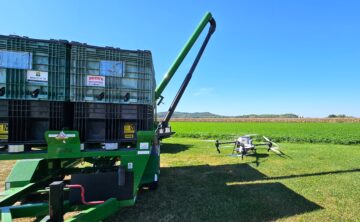 Lift off: American Drone aims to transform farming industry
Lift off: American Drone aims to transform farming industry


